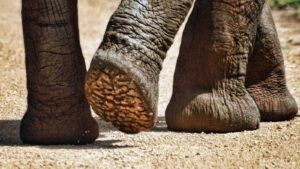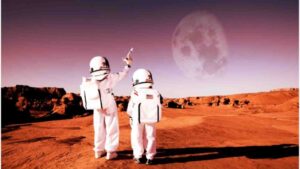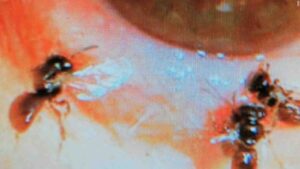Top 20 craziest facts you won’t believe are actually true.
Summary
Top 20 craziest facts you won’t believe are actually true.The world is a strange, surprising place, in ways large and small, serious and trivial. Many times, things you may have assumed to be true (for years!) might be totally false. […]

Top 20 craziest facts you won’t believe are actually true.The world is a strange, surprising place, in ways large and small, serious and trivial. Many times, things you may have assumed to be true (for years!) might be totally false. Other times, what you long believed to be a myth is actually a fact. From an earthquake-proof cathedral that’s made almost entirely of cardboard to an ancient Egyptian mummy with a modern-day passport, this list of crazy-but-true facts is sure to challenge your preconceived notions about the world.
A man once ate an entire airplane:
In 1978, a Frenchman named Michel Lotito began an unusual endeavor: he started eating a Cessna 150 airplane. Lotito developed an unusual tolerance for eating dangerous objects when he was nine years old due to a condition known as pica, which leads to an appetite for non-nutritive items. It took him two years to complete his metal-filled meal—he finished consuming the last of the airplane in 1980.
Videos: Top 20 craziest facts you won’t believe are actually true.
Elephants can “hear” with their feet:
You’d think that with those enormous ears, elephants would be able to pick up on every sound, both near and far. But it turns out that to detect distant noises, the animals also “hear” with their feet. “Normally, they would hold their big ears out like a parabola and scan back and forth. But to detect distant noise and vocalizations, they’d freeze, lean forward, and put weight on their front legs,” Caitlin O’Connell, the Stanford University research associate who discovered the phenomenon, told SFGate. “Sometimes they’d even lift up a front foot. All of them would do this at the same time—it was too coordinated to be a coincidence.”
An adult’s blood vessels could circle the equator four times:
The human body may seem minuscule compared to the size of the Earth. But adults have so many blood vessels that if you laid them end to end, they could circle the planet’s equator—which is 24,901 miles—four times, according to National Geographic!
It would take more than 20 years to try all varieties of apples:
If you’re the kind of person who appreciates variety and would love to taste-test a new type of apple every day of the week, then you’re in for a decades-long endeavor. It would take you more than 20 years to try each of the 7,500 varieties of apples in the world.
NASA was sued by three men for trespassing on Mars:
NASA has been working on Mars-related projects for years. But their exploration efforts faced an unexpected situation in 1997, when they were sued by three men for trespassing on the red planet. “We inherited the planet from our ancestors 3,000 years ago,” the men from Yemen told the Arabic-language newspaper Al-Thawri, according to CNN.
However, in an interview with CNN, NASA brushed off the suit. Their news chief, Brian Welch, told the outlet (while apparently trying not to laugh), “It’s a ridiculous claim. Mars is a planet out in the solar system that is the property of all humanity, not two or three guys in Yemen.”
Cotton candy was invented by a dentist:
Cotton candy isn’t exactly great for your teeth. And that’s why it may surprise you to learn that the machine that makes this sweet treat was invented by a dentist named William Morrison. Though he looked after people’s teeth for a living, in 1897 he also worked alongside confectioner John C. Wharton to create a cotton candy machine, according to National Geographic.
Videos: Top 30 Future Weapons and Modern Fighting Vehicles Already Being Used
Bees can live inside of your eyes:
It certainly hurts when you get stung by a bee. But what’s even worse is having creepy crawly creatures live inside your eye. That’s what happened to a 28-year-old Taiwanese woman in 2019, according to the BBC. While participating in the Qing Ming tomb-sweeping festival (which involves cleaning up the graves of relatives who have passed away), the woman thought a bit of dirt had gotten into her eye. But when her eye swelled up, she went to a doctor, who found “something black that looked like an insect leg.” The leg was attached to a 4-millimeter-long bee—and it wasn’t the only one. The doctor explained, “I grabbed the leg and very slowly took one out, then I saw another one, and another and another.” There were four sweat bees in total—all were alive and had been feeding off of the woman’s tears.
There are three different types of smiles:
No single emoji can really capture the diversity of the human smile. One 2017 study from the University of Wisconsin, Madison, found that people distinguish three basic types of smiles: reward (given as praise, for example, to a joke), affiliation (to show a bond between people), and dominance (to signify higher social status). Each of these smiles looks distinct and involves different aspects of facial symmetry, eyebrow lifts, and lip-pulling.
 ©kated.com
©kated.com
The world’s tallest tropical tree is 330 feet tall:
On the island of Borneo in Malaysia, there’s one yellow meranti that’s been deemed the world’s tallest tropical tree. Weighing more than a jetliner (which is around 180,000 pounds) and standing 330 feet tall, the view from the top is almost too stunning to describe. That’s what local climber Unding Jami found out when he scaled the tree to get the official measurement. “It was a scary climb, so windy, because the nearest trees are very distant,” he said in a press release. “But honestly, the view from the top was incredible. I don’t know what to say other than that it was very, very, very amazing.”
The oldest known star appears to be older than the universe:
An ancient star called Methuselah has baffled scientists due to the fact that the celestial body appears to be older than the actual universe. But now there may be an explanation. Although previous research suggested the star was around 16 billion years old, despite the universe being a mere 13.8 billion years old, new numbers make a little more sense.
Howard Bond, the lead author of a 2013 study by Pennsylvania State University and the Space Telescope Science Institute in Baltimore, factored in information about the star’s distance, brightness, composition, and structure. As a result, he explained that he measured Methuselah at “an age of 14.5 billion years, with a residual uncertainty that makes the star’s age compatible with the age of the universe.” That uncertainty is plus or minus 800 million years, meaning Methuselah could be around 13.7 billion years old, which would make it slightly younger than the universe.
A Noble Prize winner was given a lifetime supply of beer:
In 1922, when Danish physicist Niels Bohr won the Nobel Prize, the Carlsberg brewery in Copenhagen, Denmark, decided to give him a house. But it wasn’t just any house—it was located right next to the brewery and had a pipe that brought beer directly into the residence.
While it might seem strange to award a scientist with beer, according to Forbes, “Carlsberg had a passion for science as part of its company culture. They had a laboratory devoted to developing better beer brewing. In 1875, that laboratory was the first to isolate Saccharomyces pastorianus, the species of yeast used to brew pale lagers. The laboratory also made discoveries in protein chemistry that ended up having applications elsewhere.”
You might be able to compost yourself in the US:
When you pass away, you could choose to have your body buried or cremated. But soon, there may be another option: composting. In April 2019, a bill was passed in the state of Washington to make “natural organic reduction” a legal option. The process can turn a human body into compost within weeks by giving “the natural process of decomposition a gentle boost,” according to IFL Science. “Bodies are put in a temperature-controlled rotating vessel along with some woodchips, straw, and gases. After the process is completed, a cubic yard of soil per person is left, which loved ones can then take home to grow a tree or a plant from if they so wish.”
Read More: Top 18 Signs Your Partner Is Cheating
Shakespeare’s parents and children were likely illiterate:
William Shakespeare remains one of the most famous playwrights and poets of all time. And while the Bard attended grammar school to master reading, writing, and Latin, it’s believed that his parents and children were almost entirely illiterate. The ability to read and write wasn’t necessary during the Elizabethan era, and although Shakespeare’s father, John, may have had a basic level of literacy, he signed his name with a mark instead of his full name. His daughters, Susanna and Judith, are thought to be totally illiterate, although Susanna could write her signature.
Japan uses sunflowers to clear up radiation:
When a tsunami hit the Fukushima area of Japan in 2011, the radioactive fallout from the nearby nuclear power plant contaminated the land and water for 30 miles in every direction, according to The Telegraph. Even outside the evacuation zone, the soil shows traces of radiation, which can wind up in any food grown there. To help rehabilitate the land, Buddhist monks began passing out seeds for field mustard, amaranthus, cockscomb, and sunflowers—all plants known to soak up radioactive particles. More than 8 million sunflowers were planted within the first six months after the disaster, reports Inhabit.com.
Doctors found a tooth growing inside a man’s nose:
When a 59-year-old man showed up at the University Hospital Aarhus in Denmark after suffering from congestion and a runny nose for two years, doctors found something unexpected: a tooth. According to IFL Science, the doctors “noticed [the patient’s] septum (the cartilage bridge in the middle of the nose) was bent to the left, and there appeared to be a mass lodged in his nasal cavity.” When they conducted a scan, it “revealed that the blockage was caused by an intranasal tooth that had erupted inside his nose.” The mass was removed during surgery, and after a short bout of antibiotics and nasal saline irrigation, the man’s nose was tooth-free.
Boeing uses potatoes to improve its in-flight Wi-Fi:
Because humans can’t sit for days at a time while Boeing tests their in-flight Wi-Fi systems, the company uses something a bit more unusual to mimic the conditions of people being on a flight: potatoes. According to USA Today, vegetables make ideal stand-ins because of their “water content and chemistry [which] absorb and reflect radio wave signals the same way humans do.”
Benjamin Franklin wrote an essay called “Fart Proudly.”
Benjamin Franklin was responsible for many impressive accomplishments as an inventor and politician. But he was also a writer who penned essays such as 1781’s “Fart Proudly.” Seriously. In it, he wrote, “It is universally well known that in digesting our common food, there is created or produced in the bowels of human creatures a great quantity of wind. That permitting this air to escape and mix with the atmosphere is usually offensive to the company, from the fetid smell that accompanies it.” His essay urged the Royal Academy of Brussels to try to discover “some dug wholesome & not [disagreeable], to be mix’d with our common food, or sauces, that shall render the natural discharges of wind from our bodies, not only inoffensive, but [agreeable] as perfumes.”
Cats can be allergic to people:
Some people’s immune systems react badly to cats. A little bit of fur can provoke a runny nose, itchy eyes, sneezing, and even a rash. However, cats have allergies, too. They can have allergic reactions to other pets, like dogs and birds, or, in rare cases, to their human owners. Since we (hopefully) bathe more often than our furry friends and don’t shed so much hair, feline allergies in people usually develop in response to chemicals like detergent, soap, or perfume. If you change brands and that still doesn’t help, though, you may need to give your cat antihistamines.
Which one seems more interesting? Let us know in the comment section. Like always, if you enjoyed it, be sure to give us a big thumbs up. To stay up-to-date with all of our awesome videos, be sure to hit subscribe and turn your notifications on to never miss a thing. Until next time, do take good care of yourself.














